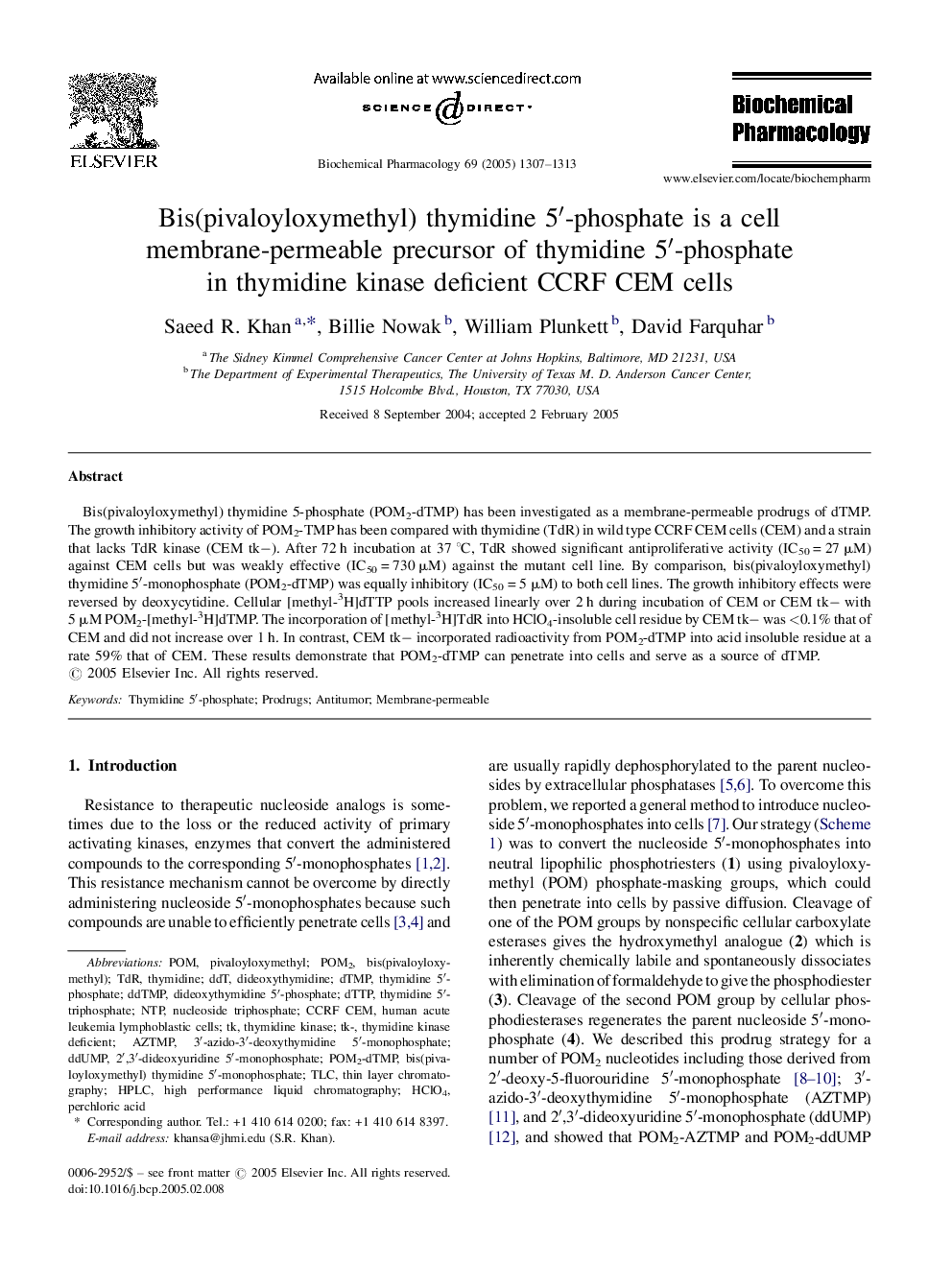| Article ID | Journal | Published Year | Pages | File Type |
|---|---|---|---|---|
| 9001457 | Biochemical Pharmacology | 2005 | 7 Pages |
Abstract
Bis(pivaloyloxymethyl) thymidine 5-phosphate (POM2-dTMP) has been investigated as a membrane-permeable prodrugs of dTMP. The growth inhibitory activity of POM2-TMP has been compared with thymidine (TdR) in wild type CCRF CEM cells (CEM) and a strain that lacks TdR kinase (CEM tkâ). After 72 h incubation at 37 °C, TdR showed significant antiproliferative activity (IC50 = 27 μM) against CEM cells but was weakly effective (IC50 = 730 μM) against the mutant cell line. By comparison, bis(pivaloyloxymethyl) thymidine 5â²-monophosphate (POM2-dTMP) was equally inhibitory (IC50 = 5 μM) to both cell lines. The growth inhibitory effects were reversed by deoxycytidine. Cellular [methyl-3H]dTTP pools increased linearly over 2 h during incubation of CEM or CEM tkâ with 5 μM POM2-[methyl-3H]dTMP. The incorporation of [methyl-3H]TdR into HClO4-insoluble cell residue by CEM tkâ was <0.1% that of CEM and did not increase over 1 h. In contrast, CEM tkâ incorporated radioactivity from POM2-dTMP into acid insoluble residue at a rate 59% that of CEM. These results demonstrate that POM2-dTMP can penetrate into cells and serve as a source of dTMP.
Keywords
Related Topics
Health Sciences
Pharmacology, Toxicology and Pharmaceutical Science
Pharmacology
Authors
Saeed R. Khan, Billie Nowak, William Plunkett, David Farquhar,
